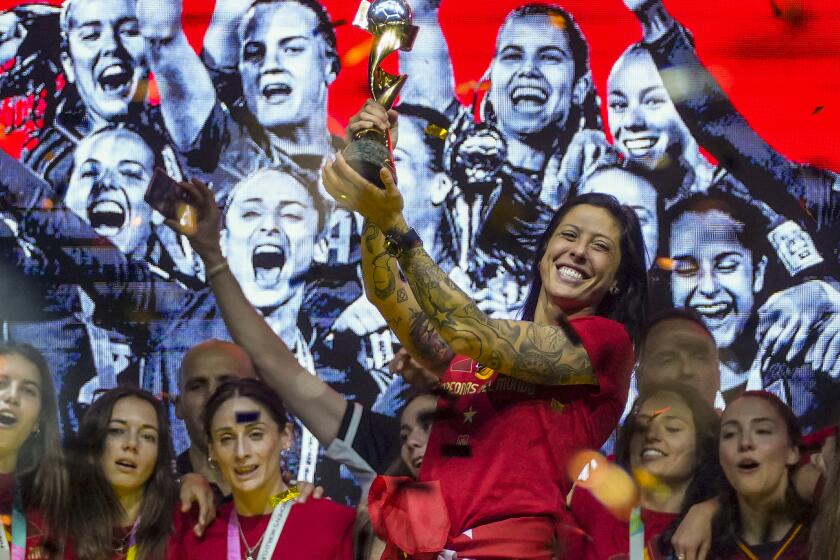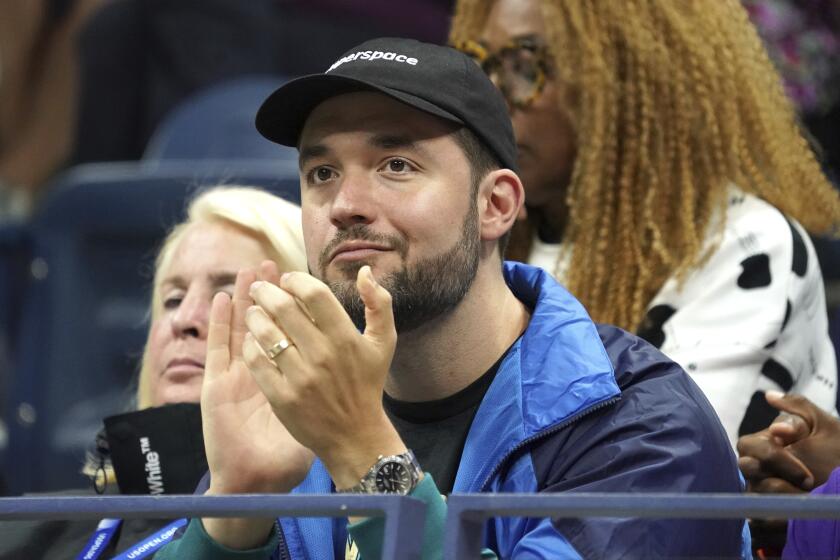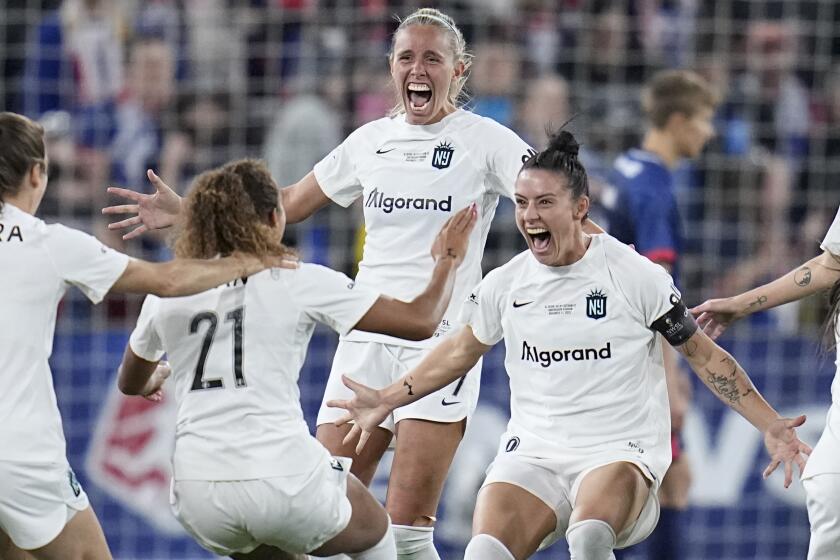
Guillermo Zamarripa is an agent for dozens of top pro soccer players around the world. But seeing the structural disadvantages facing women’s soccer, he’s after bigger goals
- Share via
When Guillermo Zamarripa arrived in New York from Mexico as an international student, he knew very little English. However, he had a dream like many students from abroad: to find a job in the United States.
Zamarripa, who played in the UNAM Pumas basic forces before moving to the Big Apple, did not reach the first division of Mexican pro soccer, but what he did has helped to fulfill the dream of dozens of female college and professional soccer players.
He founded The Marketing Jersey (TMJ) agency in 2015. It specializes in women’s football and Zamarripa now represents around 180 players, 39 of whom competed in the last Women’s World Cup. They represent 15 nationalities, including Spain, the 2023 world champions.
Among the players who have signed with Zamarripa are the Venezuelan Deyna Castellanos of Manchester City, as well as the Mexican Kenti Robles of Real Madrid; Spain’s Jenni Hermoso, of the Mexican club Pachuca; and Mia Fishel, a former UCLA star who now plays forward for the Women’s Super League club Chelsea.
When Mia Fishel left school after her junior year to turn pro, everyone assumed she was going to the NWSL. She chose Mexico’s Liga MX Femenil instead.
“It is easy to see the part that shines, the one that everyone sees, but there is a lot behind it,” said Zamarripa, who for a long time was trying to establish his business while also securing his immigration status in the United States.
Following his tenure with the Pumas basic forces, Zamarripa had a vision of using football to study in the U.S. He knew that the U.S. collegiate sports system was very advanced, and that he could combine academic study with sports. He then hired a specialized recruiting agency to help him obtain a university scholarship, and wound up studying International Business at New York Institute of Technology from 2007 to 2009, and earned a bachelor of science degree.
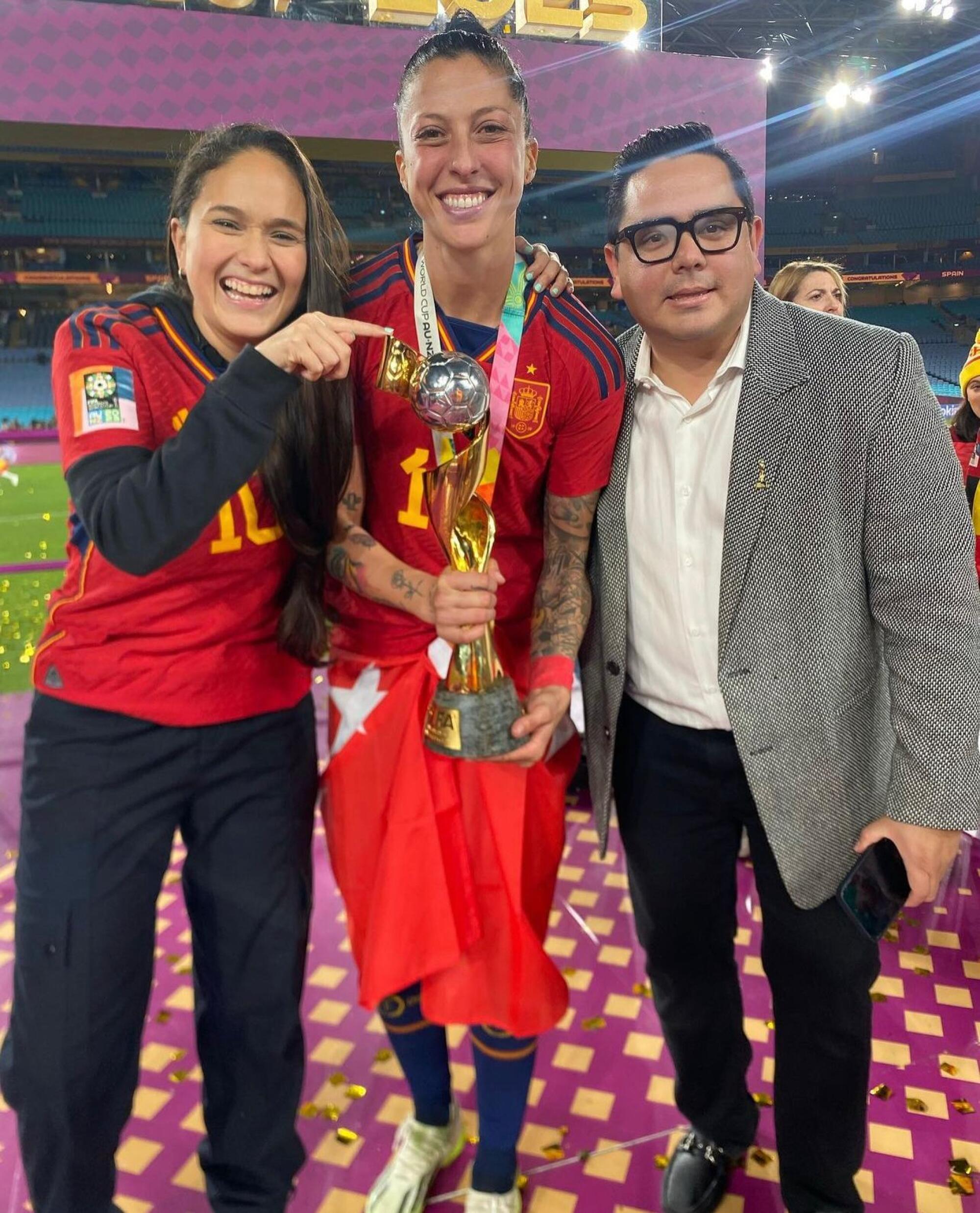
He passed through various stages of social assimilation because his level of English was very basic when he arrived in New York.
“I had to learn English in an academic context and then a professional context, which is different,” said Zamarripa, originally from Tamaulipas.
In 2010, drawing on his business knowledge, university degree and personal experience in sports, he founded CMAS Athletes, a collegiate recruiting agency focused on bringing athletes from other countries to U.S. universities, the same playbook that he had used to get to the United States.
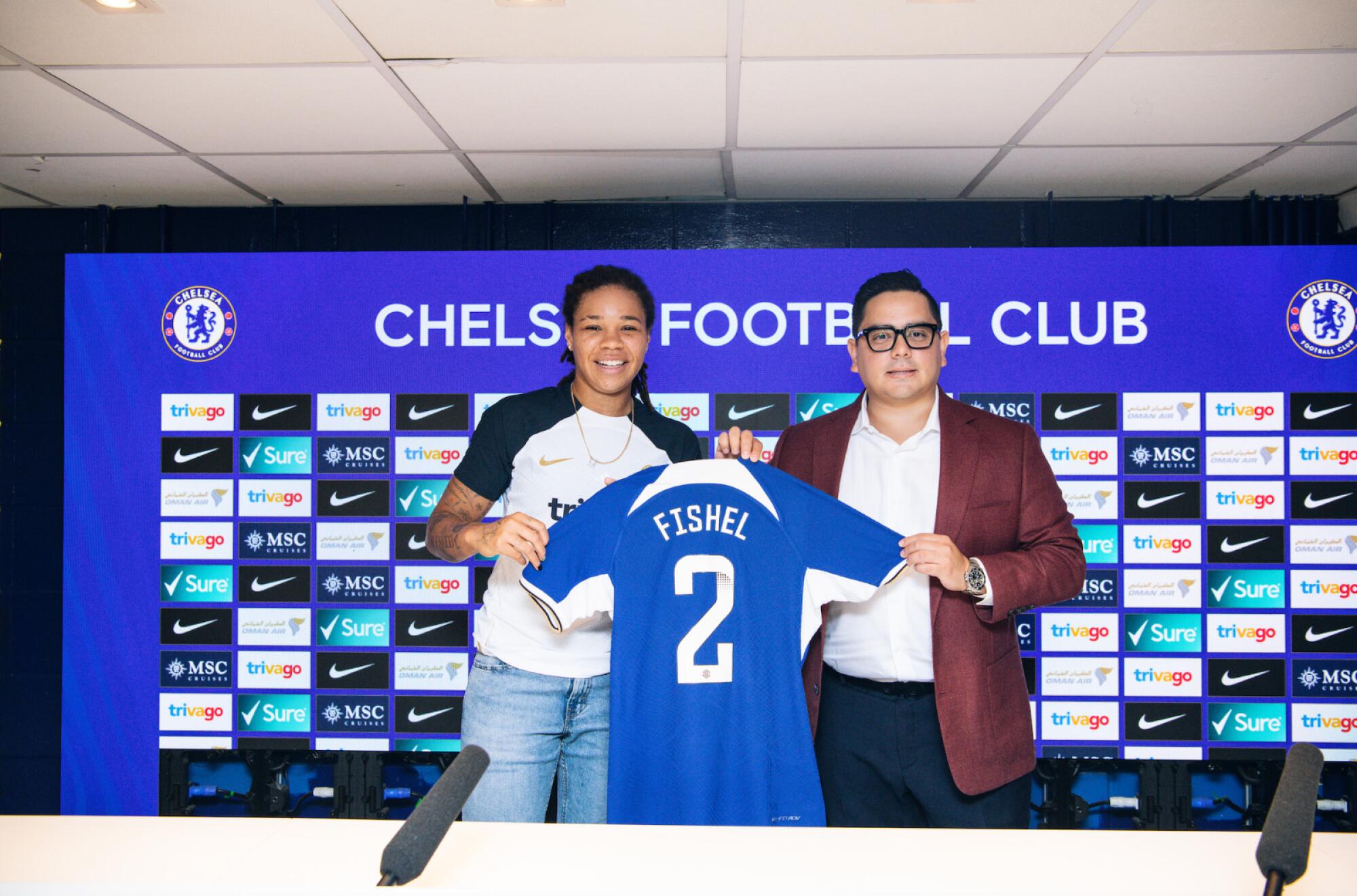
But the next step — specializing in women’s professional soccer — came naturally, because several of the players in his collegiate agency wanted to continue their careers as professionals. So he founded TMJ, a new company, entirely independent of the first and focused on professional football. He partnered with Óscar González, his former roommate at New York Institute of Technology, and with Sara Toussaint, an investor in TMJ and NWSL who also has worked with MLS, the Mexican national team and other sports organizations.
“I realized that there was potential in an industry that was in its infancy,” Zamarripa said. “Now it is very easy to say that women’s sports are one of the most emotional, exciting and inspirational sports. But in 2014, all the people who were more or less involved in women’s football were crazy.”
The company, which currently has 23 employees and has remote offices in several cities worldwide, not only represents players in negotiating contracts; it also seeks sponsorships, offers media representation and assists female athletes with issues that don’t usually occur in men’s soccer.
One of those issues came into global focus over the unsolicited kiss that Luis Rubiales, then president of the Spanish soccer federation, forced on Hermoso during the awards ceremony for Spain’s World Cup winners, causing an international scandal. Rubiales subsequently resigned from his post and was banned by FIFA from all football-related activities for three years.
Whereas some other sports agencies might have kept its distance from such a high-profile scandal, Zamarripa said, his agency stood by its client, Hermoso.
Luis Rubiales’ resignation hasn’t ended Spain’s national women’s soccer team fight for equality and a complete overhaul of the country’s soccer federation.
“Far from running away from that, we are aware that this is what is needed to really do what needs to be done to change the machista, sexist, pressure systems that exist towards women,” he said. “It’s a shame that Jenni Hermoso is going to be remembered for this.”
The harassment that a number of women soccer players and other female athletes endure also was highlighted by the alarming case of San Diego native and UC Irvine graduate Scarlett Camberos, who left Mexico’s Club América for Angel City FC due to multiple incidents of stalking and online harassment by a male fan, coupled with what Camberos characterized as the lackluster efforts of Mexican authorities to protect her.
“Guillermo helped me get to America and from there my career has gone up a lot,” said Camberos. “They also helped me a lot with the harassment case. I can’t thank him enough.”
The agency helped Camberos announce that her social media accounts had been hacked, then provided support in raising the issue with her Mexican club and also in finding her a new team in the NWSL.
Suspended Spanish soccer federation president Luis Rubiales has resigned after a kiss scandal that tarnished Spain’s victory at the Women’s World Cup.
“The people who work at TMJ are strong. Many are women, and like Guillermo, they understand the human side,” Camberos continued. “You are the first person and then an athlete and that makes me feel very comfortable.”
Upon entering the women’s soccer business, criticism did not stop for Zamarripa. Several people told him that he was not a good businessman and that he didn’t know what he was getting into. He frequently heard phrases like “women can’t play soccer,” “there is no money there,” and even encountered disapproval from his close friends, including some family members.
“But far from giving me reasons to stop, they gave me reasons to continue,” Zamarripa said. “We are bad today, but 10 years ago, we were 20 times worse. There was no media support, no one knew about women’s football.”
“I want to verify that what I was doing, helping the soccer players, was the right thing to do and secondly, that it could become a good business in some time,” he added.
Rachel Allison, a professor at Mississippi State University who has extensively studied women’s soccer, said that 10 years ago there were many doubts about the financial viability of professional women’s soccer. Media broadcasters and other businesses who invested in women’s football didn’t enjoy the economic returns that they’d anticipated.
Reddit co-founder Alexis Ohanian calls investing in Angel City FC an easy business decision because of the popularity of pro women’s sports.
But in that era there also were visionary investors who helped to grow the sport among women, Allison said.
“Now the value is clearer and more evident. We now see in women’s soccer around the world audiences that are growing. That has caused less skepticism about the value of women’s soccer,” said Allison. “When The Marketing Jersey arrived on the scene 10 years ago there was a clear vision there. The landscape of women’s soccer has changed.”
Zamarripa’s first client was Charlyn Corral, a Mexican national team striker who played in three U-20 Women’s World Cups and two Women’s World Cups with the Mexican senior team. Corral came to the U.S. thanks to the collegiate agency that Zamarripa ran at the University of Louisville, where she earned All American designation. However, Corral’s earnings when she turned professional with Atlético Madrid did not correspond to her career achievements at the time: her salary was 800 euros ($864) per month in Spain.
It was those types of situations that provided Zamarripa with his purpose in the business, and he knows many things still need to change in women’s soccer.
“For example, no matter how successful the World Cup was, because records were broken, what I can’t help but believe is that each of those players don’t just play soccer,” he said. “They have to worry about how they push their clubs, their federations, how they push their bosses to treat them better, each one of them, without exception, of the 32 teams. What would happen when those things are not there? Those challenges and obstacles and the players can really dedicate themselves to just playing soccer? But we are still far from that.”
Lynn Williams, starting in her fifth NWSL final, scored as Gotham FC defeated the OL Reign for the championship in a heartbreaking final game for Megan Rapinoe, who left with an injury.
Zamarripa also pointed to the differences in negotiating women’s and men’s soccer contracts, stemming from the vast disparity in salaries.
“When you negotiate a men’s contract you focus on four or five issues. In a women’s contract, you deal with four or five other issues. You worry about cell phones, flights, housing, meals, insurance transfers, things that can affect your quality of life,” he said. “You don’t have to worry about a man because his contract is ‘all inclusive.’ Who is going to pay for your cell phone? Well, it doesn’t matter because with the contract he can pay for his entire family’s cell phone.”
TMJ, Zamarripa said, is not a “normal agency” because the situations of female soccer players are not “normal” when signing contracts. Currently, in many parts of the world, the organizational structure doesn’t exist that would allow women to concentrate mainly on playing soccer. Zamarripa and his employees refuse to accept this status quo.
“I saw the injustices, and the passion to make a change was born in me. In my DNA it has always been about going against the current and taking the difficult path,” said Zamarripa, whose players come from Iceland, Finland, Spain, Germany, England, Brazil, Mexico, Colombia, the United States, among other countries. “All the stories of the players increase that passion.”
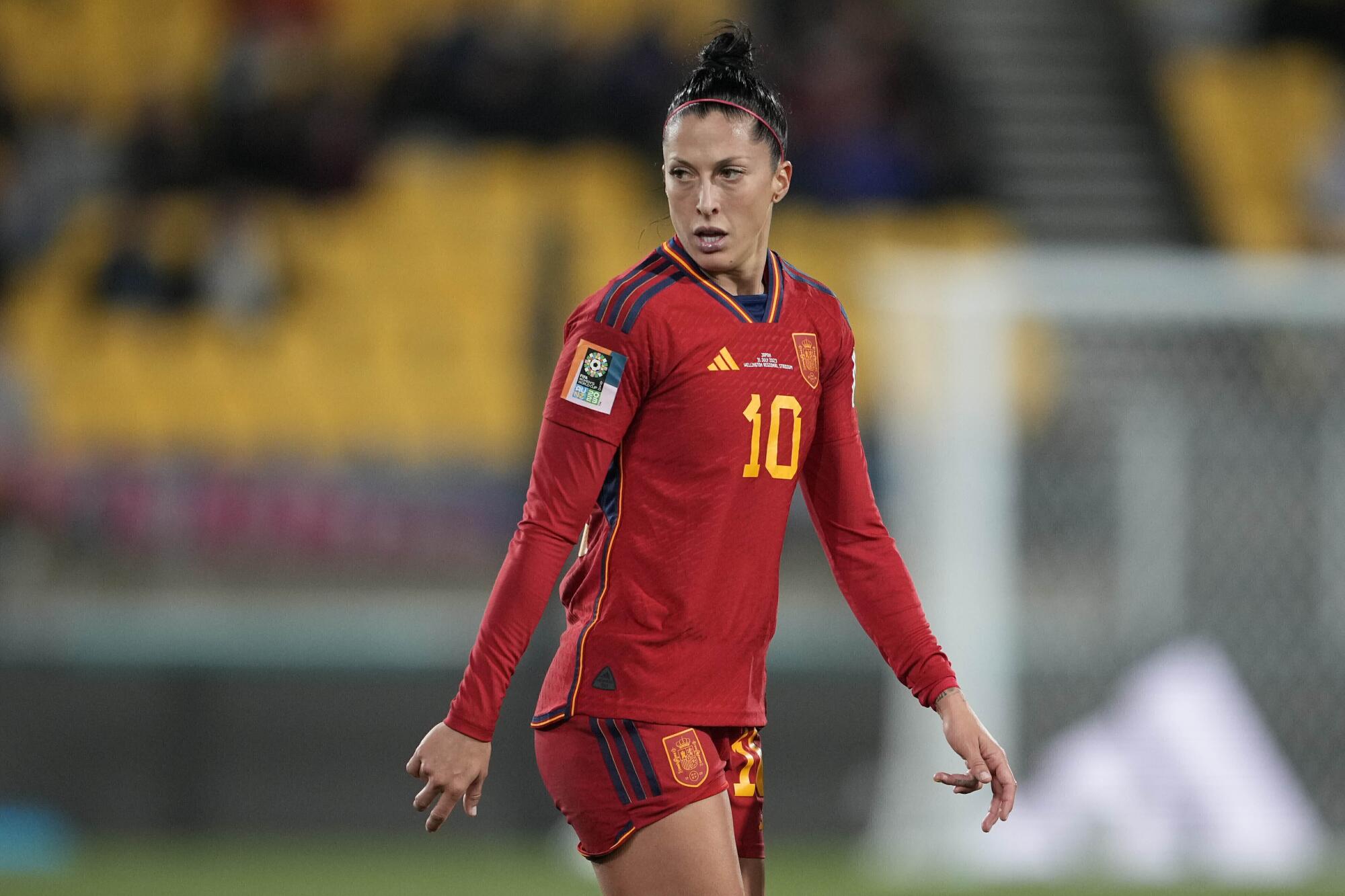
In addition to disparities in pay and contractual protections, women footballers also are disadvantaged by a scarcity of resources for training, nutrition and recovery and travel, as well as by inferior field conditions and limited laws protecting them from harassment and abuse, according to professor Rachel Allison of Mississippi State University and author of “Kicking Center: Gender and the Selling of Women’s Professional Soccer.”
“There is a lot to do to obtain the resources that are needed, and agencies like The Marketing Jersey can ensure that these players obtain sponsorships, financial support and that they can ultimately play at a high level. But also to be able to tell their stories in front of large audiences,” Allison said “What connects people with the players is hearing their stories of not only what it’s like to play at a high level, but also how they have overcome adversity and fought for opportunities and resources, and advocated for the causes they care about.”
Castellanos, a Manchester City player and former FIFA Best Player nominee in 2017, experienced firsthand support from Zamarripa, as he helped her get a team in the United States at the age of 14.
“There was something about him, in his vibe, in his way of doing things, that gave both my mother and me that confidence,” said Castellanos, who signed with TMJ in 2019.
Additionally, Zamarripa helped her obtain her first contract as a professional, at Atlético Madrid.
“There will always be needs in women’s football,” Castellanos said. “Men’s football is many years ahead of us. There are going to be many more years in which we are going to continue fighting, continue putting ourselves in a position that we want more and that we expect more, but without a doubt it has improved from when I started playing soccer until now.”
“I didn’t have a female soccer reference, and now I believe that all young players know someone at least in their country, like Marta and Mia Hamm,” she continued, referring to the Brazilian and U.S. superstars. “Women’s football was not heard, now a step has been taken in terms of visibility and that is important.”

In general, women soccer players are trying to overcome decades of structural discrimination and disadvantages. In England, for example, women were prohibited from playing football from 1922 to 1970, said Stefan Szymanski, a professor of Sports Management at the University of Michigan who has extensively studied women’s soccer. This year, the England women’s team finished as World Cup runners-up to Spain.
“They were repressed,” Szymanski said. “They are 50 years behind men, not because they are not good, but it is because they were not allowed to play.”
“The development of women’s soccer today is very similar to the development of men’s soccer in the first half of the 20th century,” he continued. “Women’s soccer has taken off in the eighties; in recent years they are reaching where men arrived in the 1960s. Just like that men’s soccer has improved, in the same way I believe that women’s soccer will reach that level in the future, in the next 50 years.”
Zamarripa has a two-year-old daughter, Sofía. Together, they dream of her one day playing soccer, in an industry that is more fair. And he is doing what he can to make sure it is.
This Times en Español article was first published in Spanish.
More to Read
Go beyond the scoreboard
Get the latest on L.A.'s teams in the daily Sports Report newsletter.
You may occasionally receive promotional content from the Los Angeles Times.


